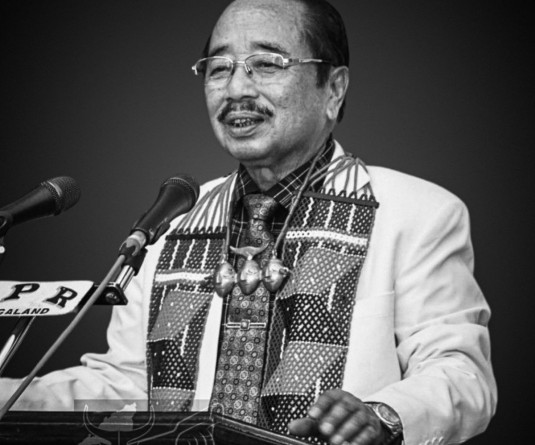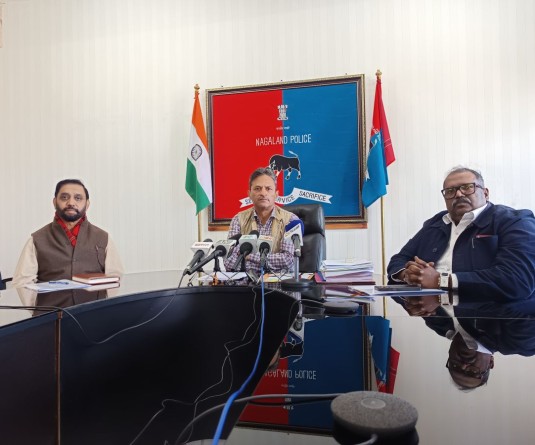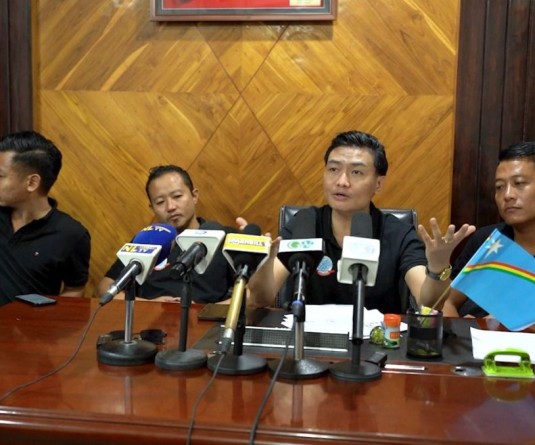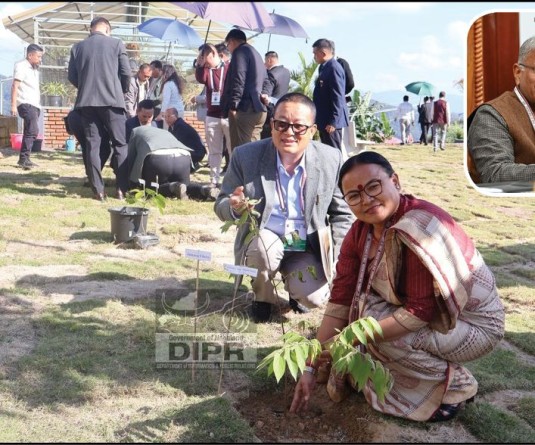
Opening doors or violating constitutional mandate?
Morung Express News
Dimapur | June 10
In a move claimed as a push towards “bringing in fresh ideas and new approaches to governance” in formulating and implementing public policies, the Narendra Modi-led government at the Centre has decided to allow public and private sector specialists to have "lateral entry" into the government as Joint Secretaries (JS).
In a notification for recruitment posted on its website and through advertisement in newspapers, the Department of Personnel and Training (DoPT), on Sunday, sought applications from 10 “outstanding individuals” with expertise in the areas of Revenue, Financial Services, Economic Affairs, Agriculture, Cooperation & Farmers’ Welfare, Road Transport & Highways, Shipping, Environment, Forests and Climate Change, New & Renewable Energy, Civil Aviation and Commerce.
The notification from the DoPT stated that the Government of India is looking for “talented and motivated Indian nationals willing to contribute towards nation building to join the Government at the level of Joint Secretary.”
The position of JS has traditionally been held by senior bureaucrats. JS is the head of the wing under the charge of Secretary of the Ministry/ Department and s/he reports to Additional Secretary/ Secretary and are at a crucial level of senior management in the Government of India. They lead policy making as well as implementation of various programmes and schemes of the Department.
Opening doors
According to a report in tribuneindia.com, the move to induct private sector specialists has come following a detailed presentation was given by the DoPT to the Prime Minister’s Office (PMO). “The presentation provided the details of the proposal based on the suggestions made by Centre’s policy think tank Niti Aayog,” it said quoting a senior official.
The Print reported that the government has appointed sector specialists in some departments, including in the Niti Aayog itself, which pitched the idea in its Three Year Action Agenda for 2017-2020 stating that it would “bring competition to the established career bureaucracy.”
Last year, an Ayurveda physician, ‘Vaidya’ Rajesh Kotecha, was appointed special secretary in the Ayush Ministry, which was against the norm for a civil servant and the appointment of Prasar Bharati CEO Shashi Shekhar Vempati is yet another example, it noted.
Since 2009, the Ministry of External Affairs opened its door to people from the armed forces and other ministries for short-term assignments, it added. Hinting at a “shortage” of joint secretary-level officers in the central government, sources in the personnel ministry said the 10 positions are only the beginning, and more sector specialists from outside are likely to be inducted into various departments in the months ahead.
Mixed reactions
The government's announcement received mixed response on social media. While most hailed it as a welcome step that would bring in the much-needed field experts in governance, critics said the system can only work if the method of selection is impartial, objective and transparent.
“It's an endeavour to get the best from whichever source available. It's motivated with focus on allowing every Indian citizen a fair chance to ensure their growth depending on their potential,” said MoS PMO Jitendra Singh to the ANI News Agency.
Others, including bureaucrats, criticized the move saying it will not offer a level-playing field to serving bureaucrats and that discretion could increase the scope for political appointments.
A senior Nagaland bureaucrat, Abhishek Singh, tweeted that while the policy for lateral entry is welcome, “Existing Policy under Rule 6.2.2 should also allow temporary lateral exits of serving IAS officers to private sector for 3-5 years to gain experience and acquire private sector skills.”
Meanwhile, a senior bureaucrat expressed apprehension to The Print that the move could open up the possibility of private sector professionals pushing the agenda of their sector, as is the case with many private consultants. “This will only increase if JS are hired from the private sector,” the bureaucrat said, asking “what happens to reservation in those posts?”
Former UPA law minister and chairman of the second administrative reforms commission, Veerappa Moily, said the move could either be good or bad, depending on the way it is implemented. “Bringing domain experts to the government is not a bad idea but it should be done on merit basis and not in an ad-hoc manner, without saffronising the service,” the Congress leader said. “It should not demoralise serving civil servants in the government.”
Leader of opposition in Bihar, Tejashwi Yadav, tweeted against the move. “How can this Manuwadi government sideline the UPSC and appoint its own people to important personnel and joint secretary level appointments? This is gross violation of Constitution and the reservation system. Tomorrow they can appoint the Prime Minister and cabinet without election. They have brought down the Constitution to a mere joke,” he wrote.
“Important positions like Joint Secretaries are to be filled bypassing UPSC according to government's advertisement today. It’s being called 'lateral entry'. BJP's way of violating constitutional mandates of reservation & UPSC. Only loyalty to RSS may suffice,” tweeted National President of All India Students Association, Sucheta De.






